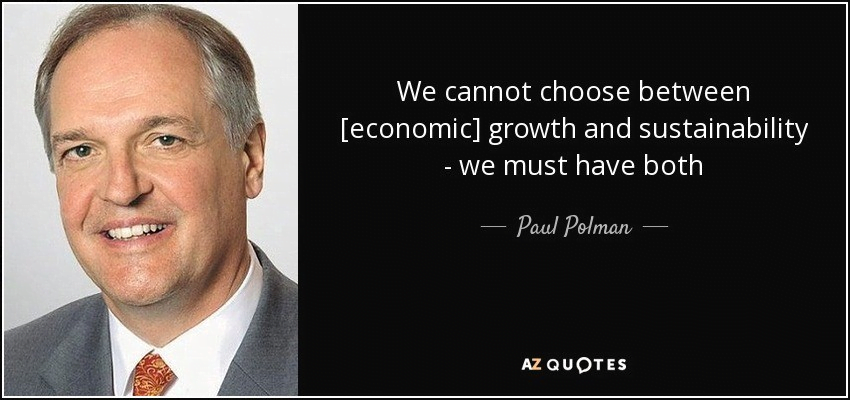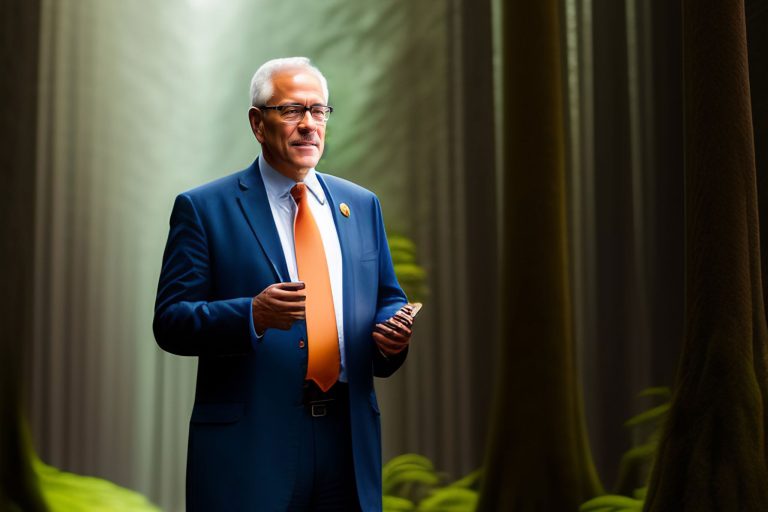The Importance Of Sustainable Leadership in the Business World
Sustainable leadership is becoming a hot topic in modern times. The results of the 2021 Global Institutional Investor Survey Report by EY (Ernst & Young) highlight a significant trend: 74% of investors are divesting from organizations with poor sustainability performance. Moreover, the UN’s Sustainable Development Goals are shaping political policies for the coming years. This means that many businesses need to think about how they can incorporate environmental, social and corporate governance (ESG) goals within their organizations to become cleaner, greener and more ethically minded. These findings highlight the need for a new type of leadership that prioritizes long-term global sustainability. Also, it should addresses critical environmental challenges, instead of just financials and your bottom line. We’re talking about sustainable leadership.
What is Sustainable Leadership
Sustainable leadership entails mindful actions and behavior’s which embrace a global perspective to recognize the link between earth and humanity. To be a sustainable leader, you must offers solutions for environmental, social, and economic challenges facing the world. Besides, fostering positive social and environmental change is the new cool thing to do. In addition, not only does it benefit the environment but also enhances your organization’s bottom line. Sustainable leaders acknowledge the interconnectedness of the Earth and humanity. This entails an understanding of the complexities of the world. Additionally, a perception of people and the environment as integral parts of their business is key.
Getting used to the changing world and environment requires leaders to become adaptable.
Also Read: The advantage of adaptive leadership in the modern business world
The Top 2 Reasons Why Sustainable Leadership Matters
Let’s face it; the world is changing. Business profitability is continuously being affected by many factors. These include recurring environmental issues such as global warming, and social changes such as reducing labor exploitation and inequality. Clearly, it is now important for top executives to acquire new skills, competencies and an understanding of climate-related risks.

By embracing sustainability, leaders can:
- Take bold steps to prioritize the organization’s impact on future generations, fostering long-term thinking and sustainable growth. This ultimately ensures that we have a livable planet with energy and resources for the foreseeable future, curbing the long term effects of climate change. Going to Mars is not a solution.
- Attract investors and customers by embracing sustainable principles and practices. It should be noted that it is a key strategic decision to embrace sustainable leadership in order to ensure success and growth. Climate change is a big issue not only for the planet but for consumers and investors. If you work to reduce the environmental impact of your operations and support moral social causes, your overall brand appeal will increase. Consumers are becoming more conscious and want to support businesses that are champions for change.
Financial Benefits of Sustainable Leadership
Sustainability strategies are a win-win pursuit, in that they generate significant financial value. A case study of beef production in the Amazon, found that embedded sustainability does improve financial performance through certain mediating factors. These included innovation, operational efficiency, risk reduction, employee recruitment, engagement and retention, customer and supplier loyalty, competitive advantage, reduced cost of capital, and improved marketing and sales. Moreover, these strategies lead to improved profitability across the value chain.
Companies today can be incentivized into sustainability leadership by quantifying and monetizing the key benefits of sustainable practices to their organization. Undoubtably, adapting to these new standards can be seen as a chore. On the other hand, you should view it as a way for your company to innovate and improve overall performance.
Therefore, it is crucial for organizations to develop new operational models. They have to support all stakeholders and ethical duties that form the interdependent systems of business, humanity, and the global environment. Without a doubt, new sustainable leaders will contribute to the betterment of the environment and unlock new opportunities for economic growth and social development.

Collaboration and Culture Change
The prioritization of sustainability begins at the top, but it requires collaboration at all levels of an organization. Importantly, the mindset change must come from leaders, who must work with their teams to foster a culture that embraces sustainability, develops long-term solutions, and encourages creative thinking.
Also Read : ESG Reporting and the role of the Board Inspiring Growth
To achieve this, top executives should actively seek new skills and competencies. These should be related to climate risks, industry-specific global warming, international debates, and risk literacy. They must make decisions that are rooted in moral and ethical principles, engage with other sustainable leaders, empower and motivate their employees, and embrace a global perspective in their thinking. By doing so, leaders demonstrate their willingness to engage in sustainability efforts and drive meaningful change.
Conclusion
The influence of the UN’s Sustainable Development Goals on political policies underscores the growing significance of environmental, social, and corporate governance (ESG) goals. This necessitates the emergence of sustainable leadership, where leaders recognize the interdependence of the Earth and humanity and actively seek solutions for global challenges.
Sustainable leadership is essential as it addresses the disruptive forces of climate change and social inequality, requiring leaders to adapt and acquire new skills while fostering a culture that prioritizes sustainability and ethical responsibilities. Notably, sustainable leadership offers financial benefits, as sustainability strategies improve efficiency, reduce risks, enhance loyalty, and drive profitability. Ultimately, embracing sustainable leadership is crucial for organizations to navigate a changing world, attract stakeholders, and contribute to a better future for the environment and society.
Begin your journey into sustainability with our leadership courses. Gain the essential skills and strategies for leaders to navigate the dynamic landscape of today’s business world.




